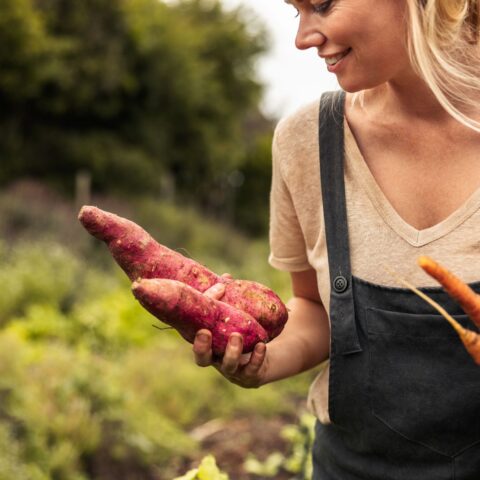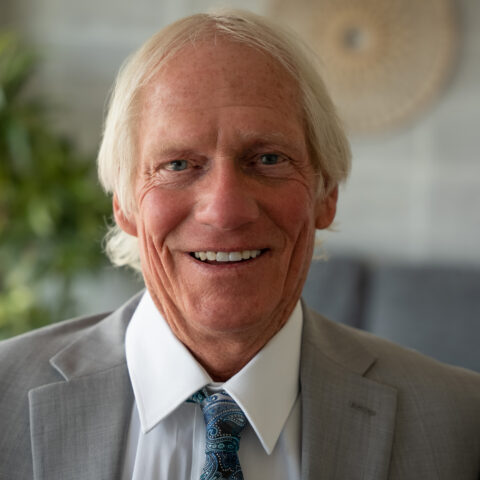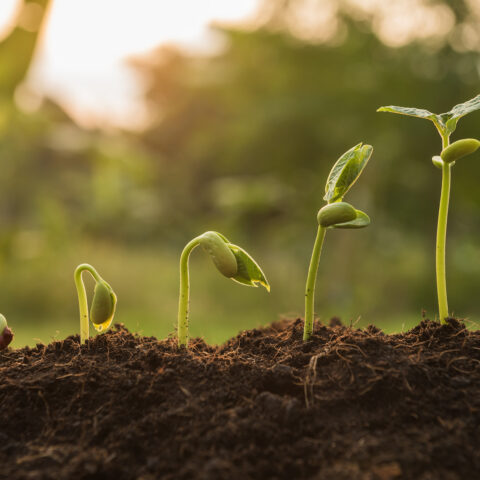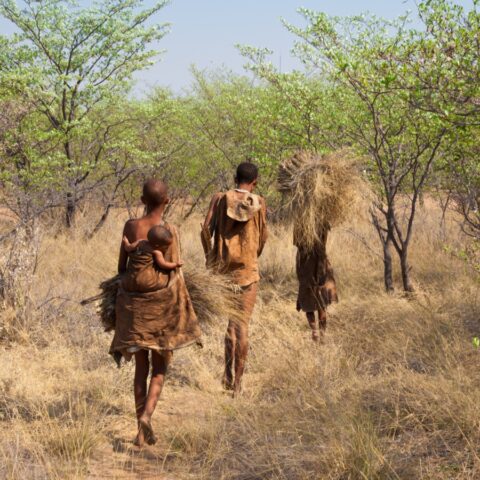The research of Dr. Douglas London on one of the last remaining indigenous hunter-gatherer societies on Earth
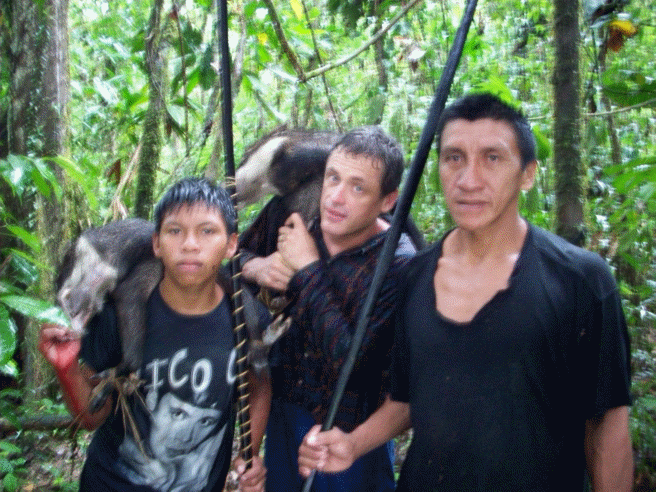
Few indigenous hunter-gatherer societies remain on Earth, and our opportunity to study them is quickly diminishing. These societies represent our last chance to understand the true natural human diet, so it is imperative we do all that we can to investigate and preserve the knowledge and understanding that these societies represent.
In 2019, we talked with Dr. Douglas London, who is studying one of the last remaining true hunter-gatherer societies—the Kawymeno in Amazonian Equador. We discussed, in depth, his time living with this group, and an aspect of their diet many of us in Western society have never heard about—the phytochemical content of food.
In this follow-up interview, Dr. London discusses his upcoming research and dives deeper into the Kawymeno diet. By studying this hunter-gatherer society, he’s hoping to unveil, in essence, a Paleo Diet 2.0.
The phytochemical content of food, discussed in part one, is part of that new schema. In this interview, Dr. London goes beyond the mere physical properties of food, and explains a concept that may be hard for many of us to understand—that food is more than just food. For hunter-gatherers living in their natural environment, food is part of their ecology and an important part of how they communicate and interact with their environment.
That may sound strange or something of a “new age” philosophy, but ask any Kawymeno and they’ll tell you it’s obvious. Dr. London provides plenty of science to explain how food, and its phytochemical content, allows hunter-gatherers to stay tied to their environment, and how that connection is critical to their health.
Keep an eye on our website and follow us on social media for frequent updates on Dr. London’s work. Like the rest of the world, the Kawymeno have not escaped COVID-19. Interestingly, however, while their population is small (and, thus, the strength of any sample size), these inhabitants don’t appear to suffer from the same detrimental effects that we’re seeing in westernized societies.
In fact, Dr. London’s assistant, Juan Carlos, has been helping local villages by delivering a natural remedy developed with the Waorani tribes. It has been so effective that some ICUs in Ecuador have started promoting the natural remedy over more westernized solutions. We’ll have updates of his progress on our social media.
Editor’s Note: Dr. London is trying to return to Ecuador to conduct further research with the Kawymeno on their diet and health. This type of research needs funding. If you are interested in making a small donation or connecting with Dr. London, please e-mail us at info@thepaleodiet.com.
Welcome Dr. London
The Paleo Diet: Dr. London, welcome back! It’s been a bit since we last spoke. What are you up to right now? What’s been going on with your research?
Douglas London: My plan is to again go down to Ecuador this summer. I’ve got things set up; we’re going to be working in a number of different hunter-gatherer communities. My assistant, Juan Carlos, is down there now, setting up things with different people. We’re going to be concentrating on some aspects, like the sense of smell. We’re going to be doing some more laboratory tests. We may do some things like—not this summer but later on—actually having hunter-gatherers transition environments, from one to the other and see what the difference is when they’re in a different food system. So, a lot of exciting things coming up but obviously the virus is putting a stop to it because they’re not allowing people in.
The Paleo Diet: Yeah, I was going to ask about that, if the pandemic is having an influence on your plan and travel. So, you can’t even get down there right now?
Douglas London: Can’t get down there on an airplane and even my assistant who pretty much can go in and out, can’t get in. He’s down there all the time working on things for me. So, the study is always ongoing. Even if I’m not down there at the moment; we have people on the ground doing stuff.
Part of his job is going out to these communities and making contact with them and working with people to go out there. So, he’s right in the communities all the time. We’ve been working together for eight or nine years now. A long time, so we’re good friends. I have a lot of confidence. If I asked him to say… “I want you to go out this community, get this type of information, and talk to these people” he’ll do it.
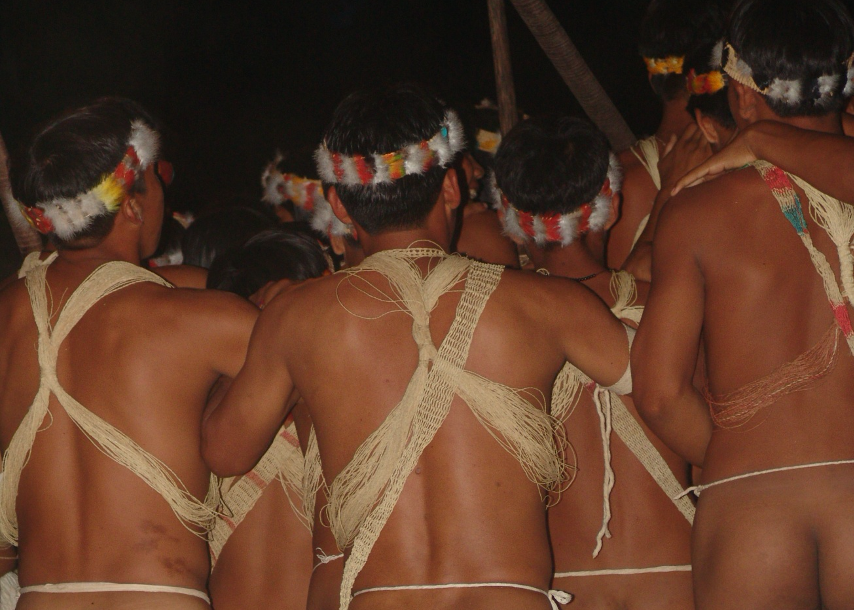
Phytochemicals and the importance of variety in our food
The Paleo Diet: Let’s just start with the fact that the response we got to your first interview was extraordinary. There’s definitely a lot of interest in what you’re doing. But just for the sake of this interview, could you give us the five-minute overview on the hunter-gatherer society that you are studying, what you have been discovering, and a couple of the highlights of what you’ve been seeing.
Douglas London: Absolutely. Again, we’ve been working since 2011 down there. There’s been a hiatus where we were doing something else. Basically, the main thing we’re working towards is we have a foundation for the Paleo Diet and we’re trying to build on that. We’re trying to, if you will, come up with a second generation of the Paleo Diet. And this is specifically focusing on an aspect of food that really hasn’t been touched on with the Paleo Diet, which is the phytochemical parts of food. Phytochemicals are about 10 percent of the dry weight of a lot of foods. They’re physiologically active in the human body. But they’re pretty much, until recently at least, completely ignored by nutritionists, by the public.
We’re interested in two aspects of them. One is their ability to prevent disease, and one is their ability to cause disease. Part of our modus operandi is that foods are neither good nor bad. They have good aspects to them and bad aspects to them, especially phytochemically.
The line between good and evil crosses every food.
Dr. Douglas London
Has the loss of our ability to sense these chemicals in food contributed to our health issues in Western society?
The Paleo Diet: You talk about this ability to “smell” phytochemicals. Does that mean they can sense and seek out the things they need? That’s an important question because we tend to think very bipolar up here of either you’re hungry or you’re not hungry. But if we still have some ability to sense and crave some things over others, then maybe that is why many people eat a lot and yet are still hungry. The hunger signals don’t shut off because their bodies didn’t get what they were hungry for?
Douglas London: I think that’s absolutely the case. And I think obesity is an interesting example. There are signals that the body receives, and I think, in the case of the hunter-gatherers, there are phytochemicals that tell them it’s time to turn them off. And they’re satiated.
They are smell and scent oriented, and they’re metabolically oriented. And we, with a modern diet, don’t have those signals. And so, someone that makes a particular type of fast food, or whatever it is, they can kind of hone in on some of the receptors in which these original senses and signals existed and bypass them or fill them with something else. This can make people never un-hungry.
So, I think it’s really interesting if we can learn how to educate our senses and to be able to understand and empirically smell and feel our food—get a connection with the diet. I think it’s possible to train it. It’d be interesting to do. I think it’s also important that mothers and fathers understand that these type of abilities—scent things—may be more helpful to do when they’re in utero or as infants. And that’s when you should be starting any kind of Paleo Diet. We shouldn’t be waiting until you’re an adult because it’s way too late by then. So, the kids should be doing that as well. Developing the skills to be able to do that would be an interesting project to work on. But I think it’s feasible.
The Paleo Diet: So, it’s essentially a skill. What I’ve been fascinated by is that you have a lot of people who are struggling with weight and they talk about, “I eat, I eat, I eat, but I’m always hungry.” The typical response is, “it’s genetics—that’s just the way you’re built.” I’ve personally always felt it’s more a case of we’ve lost those skills or lost that ability to know what we want. So, we eat a ton of food that tends to be very nutrient poor and doesn’t give the body what it needs. It’s stored as fat, but the body doesn’t shut off the hunger signals. I do wonder if we regained those skills, and had a better ability both to know what we need and also had better availability of what we need, if we’d be able to shut off those hunger signals a lot better?
Douglas London: Besides our agrarian population, we also have another comparison population, which is hunter-gatherers that have gone into the oil company territories and started to eat a modern diet. And you’ll see, right off the bat, within a number of years, they’re obese. So, it doesn’t seem like genetics plays a big role. It seems more like environmental. They stop eating phytochemicals, they stop having their connection with the rain forest. Suicide rate goes high up, alcoholism starts. The Kawymeno do not drink any alcohol. They typically did not even have any fermented beverages. Whether other hunter-gatherer communities did, they did not.
So, I think that people that are obese, there are things they can do to educate themselves. And they’ve got to first understand foods are not just foods. Foods are also medicinal; foods have a lot of medicinal properties. And some medications, for instance, cause you to want to be obese. So, you have to be very careful about your foods.
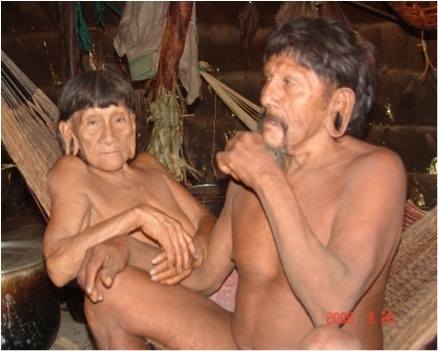
Is it possible to eat as healthy as the Kawymeno on an agrarian diet?
The Paleo Diet: That brings us to what I really wanted to talk with you about today. The last time we spoke, you compared the Waorani to a similar group that lived nearby who were eating what we would consider a healthy organic diet. But it was an agrarian diet, while the Waorani were still true hunter-gatherers. You said even just comparing those two societies, you saw quite dramatic differences in health. It was a depressing thing to hear because my thought was, “what hope do we have?” Because if their neighbors are eating organic, if they’re eating what we would consider, up here, a fairly Paleo Diet, and they still aren’t seeing quite the same health benefits, what hope do we have when we can’t even eat that naturally?
Douglas London: Absolutely, and you’re right. First, our program is comparative. We differ from a lot of other anthropologists and people in the field. We compare two cultures at the same time. We’re not doing a case study; we’re trying to compare across cultures. And we don’t want one that has a food system that’s linked to modern chemicals. We want pure agricultural; and as much as we can get, pure hunter-gathering without the influence of the outside world.
And like you were saying, the comparison group have a wonderful organic diet that would be the envy of anybody that was trying to do a Paleo Diet or anything else. Yet, they get diseases that the Kawymeno do not get, and they get a lot of them. So, like you said, there’s other things that we’re not considering in the way we eat that are important to consider to bridge that gap between a wild diet and an agrarian diet.
The Kawymeno eat simple, varied meals—and so should we
Douglas London: Another interesting thing about foods is that the Waorani… the Kawymeno, eat things that are just one plain food. [In Western society], we mix things into recipes, we mix in spices, and we confuse the original taste of the food with all kinds of other chemicals. And foods are chemicals and you mix two chemicals together, it’s going to change the property of the food. So we’re doing a chemical experiment the same time we’re trying to improve the taste.
The Paleo Diet: So, you’re saying, basically, that we should be eating simply. Don’t eat complex recipes with tons of ingredients. Really just eat straight fruit, eat straight vegetables, eat your meat—cook it—but otherwise relatively simply?
Douglas London: Right, work towards simplicity. So that is one of the things that I think is important. There are a number of key points I can touch on in terms of what I would recommend for the diet. But yeah, trying to keep foods separate and simple and obviously as fresh as possible is one aspect of it. Don’t complicate your food.
The Paleo Diet: That’s been a big sticking point for me. I don’t like this whole trend where people are saying, “on The Paleo Diet, you can still have your cakes and your breads, just use gluten-free grains and use honey instead of sugar.” My response to people is, “substituting a few ingredients isn’t Paleo. You have to make some changes in your diet. And part of it is you need to simplify. You want a dessert? Eat straight fruit.” It’s nice to hear you say that’s what you’re seeing in a true hunter-gatherer society and what seems to have a benefit.
Douglas London: One thing you have to understand about food is… we’re very worried about pesticides and synthetics. But when you realize that 99 percent of the pesticides in food are natural, and maybe only one percent are caused by humans, you start to again understand the complexity of the food.
What’s the purpose of saying that? It’s very important to do what the hunter-gatherers do—rotate your diet. And so, I think that it’s super important to not eat the same things. And you can rotate your diet simply by—take the case of an animal food—simply by getting another of the same type of animal food, but that animal eats a different diet. So, you don’t even have to change the food necessarily.
A balanced phytochemical diet is a diet that changes…the body needs recovery time from some of the bad aspects of the phytochemicals in the diet. So, it needs a break, so to speak. That’s why it’s important to vary it.
Dr. Douglas London
Douglas London: I think there’s some key things that we should focus on. One is to not have staple foods. Not just eating bread all the time, not just eating rice all the time. Try to avoid those staple foods and work towards change. That’s one of the keywords. Your diet should be change, not consistency. You should be working to modify it.
I think one of the things that might be interesting to do—if I was ever going to start a Paleo Diet to store—one of the things that I might want to do is color code the food, so that I would encourage people to, let’s say, do purple for a couple months, then do red, and then do green. Encourage them to rotate their food seasonally. That’s one thing you can do to kind of imitate a wild diet. The Kawymeno do it because the smell of the food changes and the phytochemicals change, but we could try to do that artificially.
The Paleo Diet: But one of the simple things is just eat the fruits that are in season at the time.
Douglas London: Try to eat seasonally. It’s very tough, but try to eat seasonally. Do the best you can to get a large, large variety in your diet. And again, a balanced phytochemical diet is a diet that changes. It’s different from a nutritionally balanced diet. We’re not talking about the same thing. Because the body needs recovery time from some of the bad aspects of the phytochemicals in the diet. So, it needs a break, so to speak. That’s why it’s important to vary it.
The Paleo Diet: So we have to keep it simple. Keep it just to one or two ingredients. You’re saying vary it. So don’t have your go-to foods that you eat all the time. The consistency should be no consistency. Constantly change it up.
How we can grow “fitter” plants
The Paleo Diet: I loved that in our last interview you talked about how fruit gets “lazy” when they’re grown in a field with all the same fruit. It sounds like another thing you’re saying is we should grow different types of foods together. Can you talk a little more about that?
Douglas London: Part of it is getting people to want or to demand foods that are grown differently. And like I said, organic is not going to be the total answer. We’ve compared populations from the Kawymeno to the Kichwa [a nearby agrarian society] and an organic diet was good for diseases of development, but not good for chronic diseases. So, we’re working towards trying to get those diseases of civilization under control.
So, if you have a field where you’re trying to plant food, for instance, there are lots of things you can do to make it more wild. One thing is you can surround that food with wild plants. That’s why it would be interesting to have some limited farming going on inside the rain forest. And at the same time, you can get money to help people maintain the rain forest. You can have this kind of food inside the rain forest environment or in some type of ecosystem that they grow it in. So that’s one thing you can do with your food.
Even if you can’t do that, another thing you can do is… plants talk to each other. They talk to each other all the time. Their way of talking is sense. So you can put other plants around the food that you’re growing even if you don’t go to a rain forest, or another forest. Those signals will help get messages to the plants that they need to develop particular defense mechanisms.
The reason why plants have these phytochemicals—they’re not so we can have medicine—they’re to help them survive. And if you don’t stimulate that, they don’t produce it, because they’re efficient. So, if there’s not an antimicrobial threat, they won’t produce anti-microbials. If you want that to be produced, you have to challenge the plant. Does that make sense?
You are what you eat, and you are what what-you-eat eats
Dr. Douglas London
The Paleo Diet: That makes sense. So, let’s say you’re a farmer and you’re growing fruit and you’re growing all the same fruit in a very cultivated field. Those plants aren’t going to feel a strong need to protect themselves. So, they’re not going to produce a lot of these phytochemicals.
Douglas London: Yeah, if you’re using artificial pesticides, they don’t need to produce something to protect themselves. If you’re using herbicides, because plants fight each other too. The problem is we get back to mono phytochemicals. If they don’t need to do it, they turn it off because they’re trying to be efficient. So, you want to keep that plant turned on. And again, challenging it by putting other wild plants around it.
I think that one of the things we can do that’s important is biotechnology. I think that we should work towards trying to create plants that have more variety, and we can introduce more different types of plants, and we could try to grow them together. Instead of having mono crops we can try to grow a number of foods together. We’d have to figure out how that would work best to stimulate as much as possible like in the wild environment. So, the idea is to make the environment as wild as possible, while obviously making it profitable.
I think I gave the example last time about honey.
The Paleo Diet: You mentioned that the phytochemicals can be transmitted through the honey.
Douglas London: Yeah, right. I gave that just as an example. You want to get phytochemicals to stick to hives in a wild area and the bees will bring in those wild phytochemicals and make their nests.
You can use animals as well. For instance, you might have your animal food in a more wild environment. You are what you eat, and you are what what-you-eat eats. So, you have to consider that it’s all a cycle. It’s a beautiful ecology. If we’re not fitting into the ecology anymore, we’re going to be out of whack with our food. It sounds kind of a new agey, but we want to try to communicate with our food phytochemically.
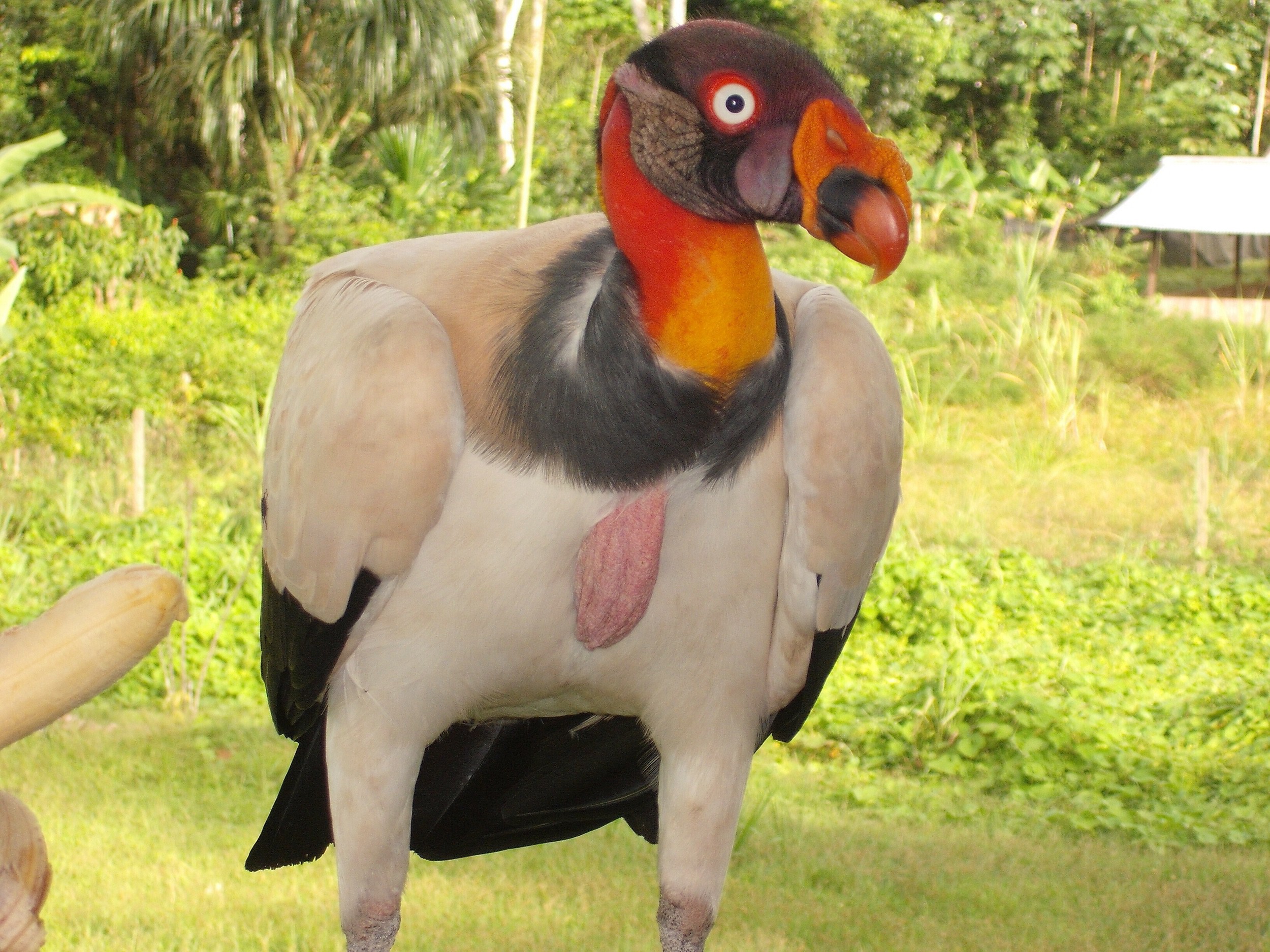
Are our modern plants and meats different from what hunter-gatherers eat?
The Paleo Diet: Going back to biotechnology and the foods that we grow, I don’t need to tell you this, but the natural fruits that you tend to find in a wild environment are generally smaller. They are more nutrient dense. We have over the centuries used various forms of biotechnology to make our fruits bigger and more colorful and more appealing. But they are very different from the fruits that were found in the wild. Does that have an impact on the phytochemical content? Does that have an impact on the health benefits of the food?
Douglas London: Yeah, the foods aren’t that sugary. Again, wild fruit is of course smaller because it’s inefficient for a plant to produce a huge fruit when they can get away with a smaller one. So if you have large fruits, obviously you’re moving away from the way the fruit was designed. I mean, tomatoes originally were like blueberries.
So, yes, if we can try to get back to producing fruit that is in line with what a wild fruit would look like, size-wise as well, that might be an interesting thing to explore in terms of if it would be more beneficial.
And moving away from very sugary foods. I think the reason why people recommend these days not to eat fruit is simply because we’ve made our fruit so sugary.
It’s a little disappointing, in a way, for me to eat a hunter-gatherer diet when I’m down there, which I do, because the fruits don’t have much sugar in them. That’s hard for people to adjust to. I personally don’t have any sugar or salt in the house and that helps me, after a while, get used to it and pull myself away from it.
The Paleo Diet: Now that’s interesting because we received criticism from some researchers, several years ago, who claimed that we had the macronutrient ratios completely wrong. They claimed that wild fruits, particularly what existed during the Paleolithic era, were much higher in sugars than current fruit. But you’re saying the opposite. You’re saying that the fruits that you are seeing the Kawymeno eat are less sugary.
Douglas London: The problem with a lot of the researchers, and again I’m not saying I’m right or they’re wrong, but they tend to be armchair researchers. They don’t actually go out into the hunter-gatherer societies and actually see what they’re doing and what they’re eating. They kind of theorize.
But in actual fact, at least for the Kawymeno diet, the fruit aren’t that different from vegetables in a way. In fact, vegetables is a misleading name. What we really want to think of is fruiting and non-fruiting plants. But they definitely are less sugary then these larger, I guess, better tasting fruit. I’m not sure why they’re saying or where they get that from, but my experience is… I eat a wild diet, I eat those 80-something fruits, I eat meat baked or barbecued over a fire. And definitely it’s not sugary.
These guys that I’m with, they don’t eat any roots. They don’t eat any grains. The only thing they eat is meat and fruit basically. They don’t have any stems, roots, leaves. And again, it makes sense. The plant is trying to protect itself. There’s no advantage to humans eating their vital parts.
And sugar is something that is in demand because it’s rare. I know I’ve gone out on trips where they go to a wild beehive and it’s really interesting to watch them get the beehive—they get stung—because they don’t have much sugar. And so that’s like a big treat for them to get some sugar because they don’t really get it in their diet.
So, I don’t get where they’re coming from, the researchers, but maybe I’m missing something.
The Paleo Diet: We just brought up a whole lot of differences between the sort of fruits that we can get up here in the U.S. versus what they’re eating down there. Is it so different at this point that you could almost call it a different food and we simply can’t get the same health benefits? Or is there still benefits from eating the fruits available to us up here?
Douglas London: I’m going to hammer it again; variety’s important. In other words, it’s not just the fruits, but we’re just eating less and less variety. And thus less and less is changing. That’s one of the things we can imitate with a diet; a wild diet.
We want to work on a diet that involves change rather than consistency.
Dr. Douglas London
I think if there’s a consumer demand for Paleo food then there will be people that produce it. People need to see that there might be some value to it. We have to make do with what we got. But I think that farming or modifying our agriculture, is really one of the keys. When you say “Department of Agriculture” that’s completely eliminating any other type of food except what’s grown with agriculture. We need to think twice about how we grow our food. We need to think twice about not oversimplifying our food. In other words, what may be wonderful nutritionally for you might be terrible phytochemically. So, we need to not over-simplify our food.
The Paleo Diet: In some agrarian areas, farming is everything. And often farmers grow one of three things: corn, wheat, or soy. Fields and fields of those three things. You really see what you’re talking about. We have dramatically simplified our foods.
Douglas London: Dramatically. We want to work on a diet that involves change rather than consistency. And that’s one of the big differences between myself and nutritional advocates. I know that most nutritional advocates would also say variety is needed. I don’t think there’s any disagreement with that. But to the extent and the way we vary our food, I think we differ on that. Even further, in terms of the connection to the environment and taking the ecology into consideration, we are not on the same page.
You get back to meat. We love to eat the muscle and we call that animal food. The reality is we’re eating just a small percentage of the richness of the animal. The Kawymeno eat the feathers of a bird. They burn them down to be sanitary, but they eat pretty much the entire animal except the colon, the hooves, maybe a couple of other parts of the peccary. So, if you want variety you don’t even have to change the animal you’re eating. You just have to eat different parts of the animal. Maybe it’s not palatable, but you can put it into a sausage, you can put it into a lot of ways that can make these different organs and different parts of the food work.
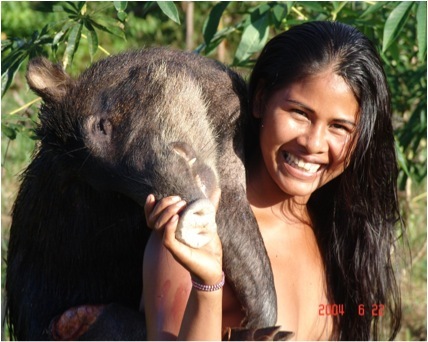
The garlicky pig
The Paleo Diet: Something I’ve been thinking about since our last interviews is this whole question of why do we have such a high craving for sugar? This is just ballparking a theory, but you said the Kawymeno like to eat the fruits when they’re ripe and have the right phytochemical content. When they’re ripe, the sugars tend to simplify a little bit and the fruits become a little sweeter. I was wondering if that sugar craving is part of how they’re able to identify when the fruit is ready to eat?
Douglas London: It definitely is. I think I talked last time about the garlicky pig. Because one thing you have to understand, too, is animals have phytochemicals in them. So, animal food is also quite chemical in nature. One of the criticisms of my research was that people in the Arctic, they’re not getting any plants in their diet. No, that’s not the case. The animals already have plants in them. They already consumed these phytochemicals.
With the garlicky pig what happens is this; the plant produces a fruit and the peccary [pig] eat that fruit. That fruit turns on the desire for the Kawymeno to eat the peccary at that time of the year. That fruit finishes, another season comes, the peccary eats a different type of fruit with a different flavor that turns them off from eating it, so they no longer want to eat the peccary. There’s just as many peccary around as there were before and after, but the plants have modified the flavor of the meat.
They’re kind of getting humans to eat seasonally by changing the flavor of their diet. So, the fruit are to some extent in control, rather than human. That’s how an ecosystem works.
The Paleo Diet: Absolutely fascinating.
Douglas London: I’m just trying to give you an idea of the subtleties. And again, in an ecosystem, plants, long term, run human lives and not the other way around. Obviously, plants produce the air we breathe, they produce fruit, but they have a reason for keeping us animals around. And so they’re to some extent manipulating us for their benefit. And we have to remember to not be so high and mighty as humans and really understand that the plants are a powerful presence. And just because we can domesticate them doesn’t mean that we have everything under control.
Again, that’s why it’s very important as a human, to be communicating with your ecology, so you’re in tune with it.
The Paleo Diet: I remember in the last interview, you talked about the fact that the Kawymeno don’t see themselves as superior beings, but just another creature living in an ecosystem. And it seems like that’s part of what you’re saying here. We’re all interconnected and rely on one another and there’s a certain arrogance in Western society that we control the earth.
Douglas London: Again, if we were a Kawymeno, we would be able to go into the rain forest and we’d smell the world or sense it. It creates a whole new dimension as to how we interact with the environment. We lose that sense of smell, we’re cut off. And I think that’s a problem nutritionists have too because they work with agriculture, they don’t get the fact that the smell of food and the chemical flow of food matters because they never study a population. Let’s say they don’t study 99 percent of human history, they’re just studying that one percent of abnormal modern agricultural society that we have.
So, we’re trying to study that other 99 percent of the way humans live. It’s very sad that our opportunity to do that is lost. We’re trying to get funding. We’re going to make these discoveries, but it’s kind of a new orientation towards food that I’ve kind of developed by working with them. I never had this idea before. I came in with completely different ideas of what I was going to study. But they led the research.
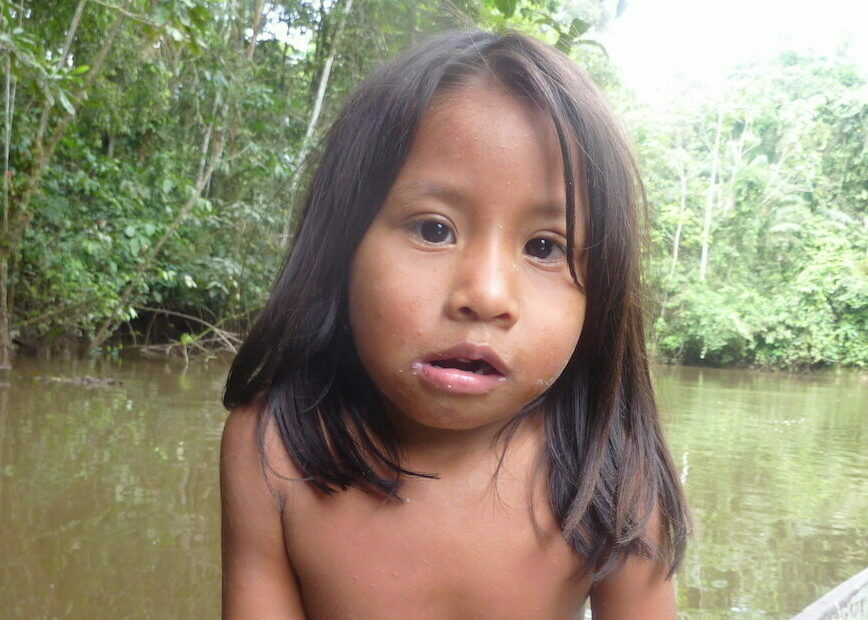
Starting with our natural diet as the base
The Paleo Diet: That’s an issue I have with some of the research we read. We know the Western diet is unhealthy, but we start with it as the base and then try to modify from there. What I don’t get is why we start with a diet we know is unhealthy. Let’s start by trying to study the diet that we evolved around and then modify from there based on what’s available to us.
The second-generation Paleo Diet is taking into account the ecology and the connection of food to the environment.
Dr. Douglas London
Douglas London: Yeah, exactly. And again, this is why I say the second-generation Paleo Diet is taking into account the ecology and the connection of food to the environment. That’s one way we could kind of get back to basics.
Organic food is not going to be the answer for all of these conditions that we have, especially chronic diseases. Our studies show that the wild diet seems to make a big difference. And we’ve done the best we can to eliminate confounding variables. That’s why we study two populations not so far away from each other that are exposed to very similar conditions. They also have the same amount of exercise, we tested that. So, their body mass index is roughly the same. So, we’re trying to control these other variables, like exercise, that people say, “oh, maybe that’s the difference.” So we’ve tried to rule that out as much as possible, and even the genetics, because we have the same group, right?
What we’re trying to figure out is how much does diet matter? How much do these phytochemicals matter? I think we have a leg to stand on in terms of suggesting these things when we try to set it up as carefully as possible so we’re not just guessing.
The microbiome of the Kawymeno
Douglas London: There’s one other point I want to make. It’s a little different—we haven’t touched on it yet, but I think it’s important. You have to understand too that there’s an organ in our body, called a microbiome. And the microbiome is billions of microbes in our body. We’re a bag of microbes with a billion microbes in each of us.
We have no idea what really regulates or decides which microbes are going to be there, which microbes are not going to be there. But I think we have to consider the antimicrobial effects of the phytochemicals… meaning there are anti-microbials in plants. If you put them on a staphylococcus in a petri dish, they’ll kill it just as fast as an antibiotic will.
The Kawymeno traditionally haven’t used fermented beverages, but they’ve adopted some from the Kichwa. I could be wrong on that, but certainly, the vegetables that are used to ferment, like the cassava, have no spiritual name while the rest of their food does [indicating that it’s new to the Kawymeno.] So, you chew the food, then spit it out. Part of the food we eat down there is spit, but it automatically sterilizes it within 10 minutes, so there are a lot of powerful antimicrobials in the food.
So that’s another thing. We have to connect our microbiome to the environment and the ecology within us, not just outside of us. The ecology within us has a microbiome and understand that diet profoundly affects that microbiome.
I believe one of the regulating factors of the microbiome is antibiotics and probiotics. I don’t mean probiotics in the sense that health food guys made it. If you’re eating a hunter-gatherer diet, you’re eating low doses—antimicrobial doses—all the time and you’re varying them up. These antimicrobials affect the microbiome. In fact, most modern medicines are based off of plant phytochemicals and they imitate them. I mean, if we didn’t have a phytochemical that did that, the body wouldn’t be able to absorb it—these medicines that we use, these synthetic medicines. So, we’ve kind of, how do I put it, bastardized the way that the body is able to absorb the phytochemicals through our modern food system.
Perhaps even with kids that are in infancy and in utero; they don’t get that kind of input. It may be difficult to develop a coherent microbiome. I think that we have to recognize ecology; our own microbial ecology; our own bodies and the ecology around it. They’re all connected and are out of sync with regulating our own microbiome.
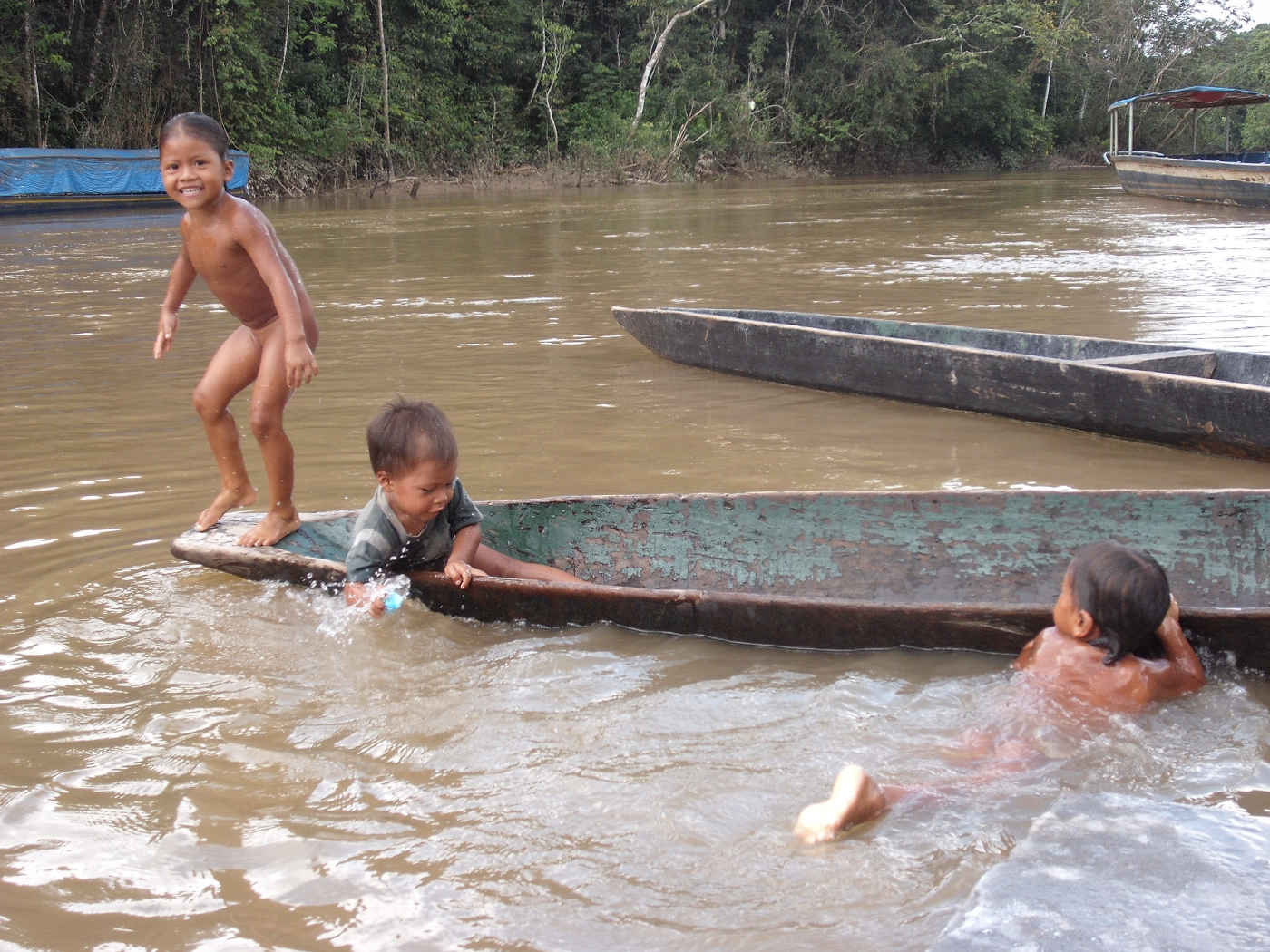
Douglas London: That’s part of the reason we get diseases; it’s not just the nutritional value, it’s the fact that we’re screwing with our microbiome which can hurt our ability to control diseases. The Kawymeno, interestingly enough, if they get a spear wound and the spear sticks in their body, let’s say they cut it off, it doesn’t get infected or swollen. I said that before, right?
The Paleo Diet: Yeah, that was absolutely fascinating. I had always assumed that if you get a wound it will get infected if you don’t treat it.
Douglas London: Right. The reasoning behind that is the fact that the microbiome is affected by food. I think that we talk about gut microbiome all the time, but that’s really an artificial human distinction line. It doesn’t stop at the gut; the microbes are all over the body. So, you get microbes that are naturally in the body, like staph or strep, that are growing residential diseases caused by residential microbes.
I believe this can be controlled through the diet. One of the keys is the antimicrobial aspect of the diet, and the anti-inflammatory aspect. I could go into great detail, but I’m just going to give you an overview.
The Paleo Diet: I was going to say let’s leave it at an overview, because hopefully we’ll get a chance for another interview in the future. I would love in that interview to really dive into the microbial side and the microbiome.
Douglas London: I’m actually working with Dr. Cordain on an article now where we’re going to try to talk about that a little bit. You know, he’s the founder of this field, and I’m happy to be able to be collaborating with him on this article. So hopefully that will be coming out in the near future, which would give a little bit of a background.
The Paleo Diet: Fantastic. This would be a peer-reviewed article?
Douglas London: Yeah, peer-reviewed article. Fortunately or unfortunately, with a peer reviewed system, we tend to focus on being accurate, exact, and not exaggerate, which is important. But I think that can get us away from being solution-oriented. If I have to pick a bone with academia, that’s it. We tend to focus on analyzing, rather than trying to find solutions. So, I try to have a practical bend to it, try to provide some perspective on something that we could do different. Sometimes that meets resistance in terms of getting it published.
Plant-animal ratios, macronutrients, and salt in hunter-gatherer diets
The Paleo Diet: So, I just wanted to hit you with three more things. The first one is based on your experience with these hunter-gatherer societies. What are your thoughts on plant-animal ratios? Is there a set ratio? Does it vary? Do you see any all-plant diets? Any all-animal diets?
Douglas London: Okay, well the problem with thinking of it as a weight ratio is when you’re talking about phytochemicals, one drop of a phytochemical could kill you. In other words, they’re very powerful and potent, so you can’t do it by the pound.
Practical answer, they eat a lot more meat than they do plants and they eat a lot more variety of plants than they do meat; you get the variety in the plants and then you have the weight in the meat. So, it’s different.
[In our research,] we’re doing more traditional dietary stuff where we weigh all the meat and all the foods they have so we can get that nutritional composition, but they’re like apples and oranges. More, they do a heavy amount of meat. Again though, when I say meat, I mean the whole body. It would be toxic if one of us ate that much meat, like a kilo almost of meat, a day.
The Paleo Diet: That’s a lot. My next question: in Western society, we seem to be obsessed with macronutrient ratios between carbohydrates, fats, protein. Should we be eating a high-carb diet, a low-carb diet, a high-fat diet, a low-fat diet, etc. What’s your experience down there? Is that a focus?
Douglas London: I’ll say one of the major problems with nutritionists in general, I don’t mean nutritionists, I mean the nutritional field, is they don’t base their discipline on biology. They don’t take into account human evolution. They don’t take into effect a lot of the basics of biological science. So they’re going on something different and I think that it would be important to actually put more biology back into nutrition.
I think the Paleo Diet is an important step in the right direction to try to, number one, hook us up with 99 percent of the core of the evolution of humans with their food and realize that that matters.
Dr. Douglas London
Douglas London: So what we get is a lot of dietary ideas that don’t have a foundation in understanding humans in a more holistic perspective. My feeling is we’re continuing to have fad diets that are only taking part of the picture into consideration. So, they’re only going to have part of the answer. I think the Paleo Diet is an important step in the right direction to try to, number one, hook us up with 99 percent of the core of the evolution of humans with their food and realize that that matters. Our bodies are adjusted for that.
The Paleo Diet at the same time has a long way to go. We’re just beginning to understand other aspects of the Paleo Diet that haven’t been discovered and talked about. That’s one of the reasons I think that pretty much we’re one of the few people really working in a systemic fashion.
The Paleo Diet: There’s this belief now that hunter-gatherer societies eat a very high-sodium diet and we should be including lots of sodium in our diet. What’s been your experience with the Kawymeno?
Douglas London: In the rain forest, there’s no ready access to sodium or salt in the diet. However, I’ve noticed one of the ways they get sodium or get different types of salt in the body is through springs. All the animals go there, you see prints all around it, they consume some of this salt. It’s then passed through the food chain. We’ve not done a sodium analysis of the meat as to whether it’s high sodium or low sodium, so I can’t really weigh in on that, but I know that one of the ways that they get these types of salts in the body is through the environment and through the ecology.
Right now we’re trying to do an analysis of the meat. I just have a little funding from New York University and we want to go down there to do that. So, we can get another take on that. But I don’t have an expert opinion on that.
The Paleo Diet: Fair enough. But that’s a good segue to the fact that you need funding.
Douglas London: Sadly, because of what’s happening now, we may not have enough money to continue. We may have to stop because of the COVID-19 virus. So we really do need funding now to keep going. I think that our research can even help, maybe not immediately, but to understand viruses and the ecological system that they function in and try to get a handle on perhaps prevention of some of these diseases, though maybe not cures. So, I think it’s a shame if our research goes away.
I think it’s been important to realize that if we don’t get support now, it’s going to be too late. It’s not like you can support us next year. Hunter-gatherers are going away.
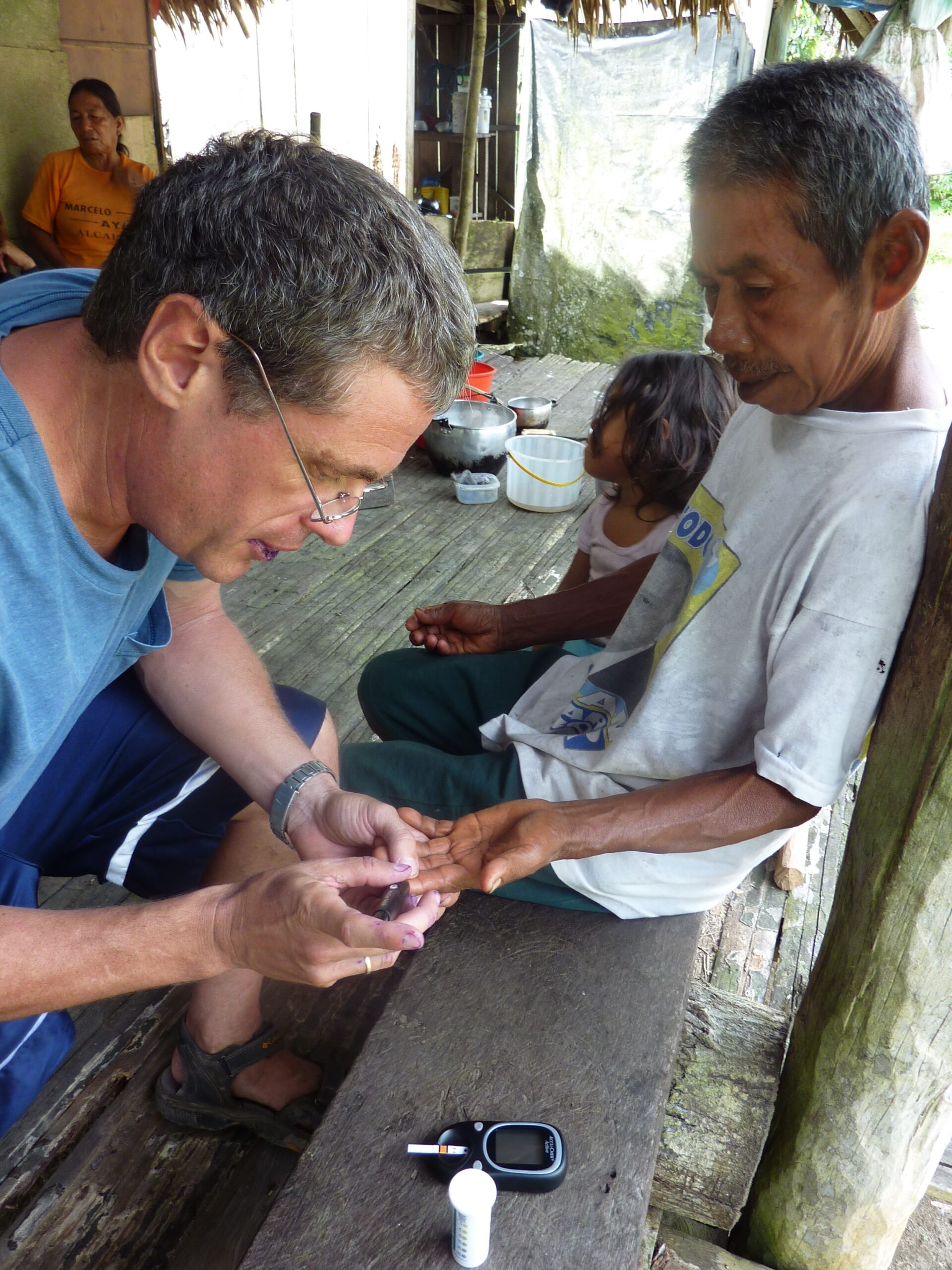
The Paleo Diet: I get that. As you said, the window is closing. If you get that funding, if you can get down there after the lockdown is over, what are you hoping to research next? What discoveries are you hoping to make?
Douglas London: One of the things that we want to do is understand how the physiology changes when you move from a hunter-gatherer to a modern diet, and back and forth. So that’s one of the things we’re interested in trying to understand if there are immediate effects or if the effects are long term or short term.
We’re very interested in being solution-oriented. We’re very interested in trying to find out what diet people can eat, and what modification in agriculture can be made to make everybody healthier. Understanding hunter-gatherers could play a role. So that’s our overall goal. It sounds rather grandiose, but it drives a lot of our research. We believe that we’ve got a lot of keys here that are worth pursuing, with some solid research to back them up.
At the moment we’re working on hypotheses from the evidence that we’ve collected. We want to work on understanding phytochemical content and to better understand how scent plays a role in it. We also want to, understand more about the non-nutritional phytochemical aspect of hunter-gatherer diet. We want to be able to come up with more consumer ideas as well. Again, we’ll always have the caveat that it’s research and process. We’re always trying to learn more. We think there might be a connection that may help our diet.
I hope people will have an interest in the preventive aspects of what we’re doing, and the possibility to have an impact on everybody on the planet.
Dr. Douglas London
The Paleo Diet: I love hearing that. That’s a good positive note to finish on. We we started this conversation with you telling us about how great their health is. Their diet has a dramatic impact or effect on their health that we just don’t experience in Western society anymore.
And that’s a little depressing because it sounds like we’re just going to have bad health. So, I like that you said you’re solution-oriented. It’s not just, “hey, here’s what we saw down here. We can’t do this. Sorry.” You’re researching it with the hope that your next steps are to say, “here’s what we can modify in Western society to get closer to this, to get closer to those health benefits.”
That’s part of why, again, we really want to push people to help you out, to support you because there’s benefits to everybody to the research that you’re doing.
Douglas London: Yeah, exactly, but while we’ll be around in 10 years, 20 years, this is not going to be there. You have a window of a year or two. And that’s it. So, there’s an urgency to doing it. I hope people will have an interest in the preventive aspects of what we’re doing, and the possibility to have an impact on everybody on the planet. Again, grandiose, but that’s something we would try to work towards—at least making our contribution to that.
The Paleo Diet: I think that’s great. I don’t see it as grandiose. Somebody needs to be doing this research and you’re the one who is going down to the rain forest and doing it. So thank you. And we will certainly do everything on our end to try to get the word out and to try to help you.
Douglas London: That’s great. And thanks for taking the time. I was going to say thank you to Dr. Cordain who’s been a pretty solid supporter and now you’re supporting us. He’s open minded and he recognizes too that the research on the Paleo Diet is a living organism, we don’t have all the answers.
Transcribed by https://otter.ai
